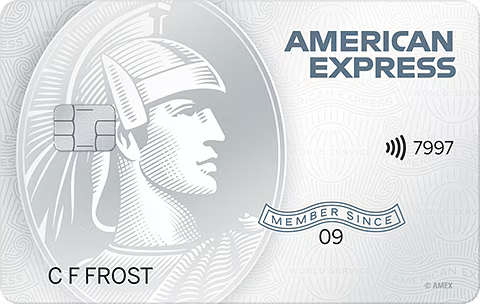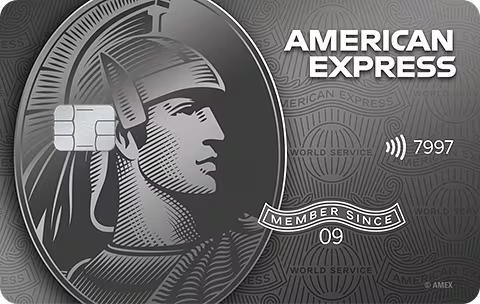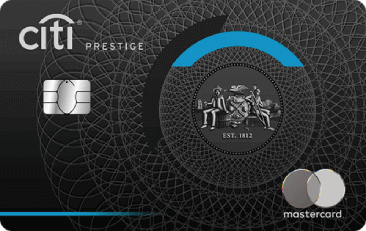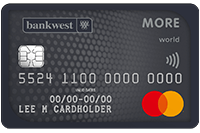Guide to credit card rewards programs
Savrr.com is a trading name of Fair Comparison Pty Ltd. Comparison tables are powered by Fair Comparison Pty Ltd who do not compare every provider in the market, or all products from the displayed providers. Fair Comparison Pty Ltd does not give recommendations, advice or credit assistance and may receive a fee if you, apply, click through, or successfully qualify, for a product displayed.
Learn More
Lots of people love the perks you can get from credit card rewards programs, and for good reason. But there are a lot of options to choose from, which can make the decision headache-inducing. So, we put together this guide to hopefully make the process of picking a suitable one for you that little bit easier.
What is a rewards credit card?
Rewards credit cards are much like any other kind of credit card, except that they typically charge higher fees or interest as compensation for offering a rewards program.
Depending on the card type, programs typically grant you cash back, points or another kind of reward every time you shop and use your card. Some also grant ongoing rewards that you can access even when you’re not shopping.
Types of rewards programs
One reason why choosing a rewards program can be so challenging is because there are several types, including:
- General rewards programs
- Frequent flyer
- Cashback
- Supermarket
- Store rewards
When looking for a reward card, the type of card that’ll work best for you will depend on what you want out of it. Here's a little more detail on some of the most common and popular ones available:
Cashback credit cards
Cashback cards could enable you to redeem rewards in cash back for shopping with your credit card. Usually, you’ll get paid a percentage of the amount you spend on eligible purchases. For example, if you spend $500 using a 1 per cent cashback card, you’ll receive $5.
While less common, in limited circumstances some cashback credit cards can be flexible in how they pay their rewards and may allow you to request the reward be paid via PayPal, direct deposit or even by cheque.
Shopping points credit cards
When a credit card offers shopping points, the card issuer will still provide you points for shopping with your credit card. But instead of redeeming rewards in cash, they pay with points. You can then use the points earned for eligible products and services.
It can be harder to work out the value of reward cards that grant points because you may get a certain number of points for every dollar you spend (a specified earn rate), but those points may not always buy you the same amount of value.
As an example, a specific points card might give you one point per dollar spent. But when you first sign up for the card, it might cost you 10,000 points to buy a particular smartphone. Two years later, it might cost you 30,000 points to buy a similar smartphone.
So if you see the points value of goods you want increasing, you may decide to spend your points soon after you earn them, to help maximise the value you receive from this type of credit card.
Shopping points rewards cards can come in many forms, for example:
- Store-specific rewards cards allow you to redeem points for rewards in a specific retail chain (e.g. a stationary or tech shop)
- Supermarket rewards cards allow you to redeem points at any of the supermarkets in that particular chain (e.g. Woolworths or Coles)
- Petrol rewards cards can be great for people who do a lot of driving, such as those who drive a lot for work or live in rural areas and have to travel a long way to get to a supermarket and other essentials, as they could enable you to spend your points on petrol and can offer per-litre discounts when you fill up
- Self-contained credit card rewards programs provide a catalogue of products and services that you can buy with rewards points (and often you can supplement your points with real dollars if you don’t have enough) — American Express is an example of a brand with a credit cards rewards program of this kind.
Frequent flyer credit cards
Frequent flyer cards are much like shopping points cards in that they grant frequent flyer points when you shop. The difference is, those points can be redeemed for flights and other flight-related costs, often with specific airlines. Frequent flyer cards also provide other perks like status points, travel insurance, priority boarding and more.
Qantas frequent flyer and Virgin frequent flyer cards are examples you may have heard of before.
Black credit cards
The most expensive cards with some of the best perks and rewards, and the most selective eligibility criteria are often referred to as black credit cards. These work like other rewards cards, and while many offer similar types of benefits to regular rewards cards, these benefits often come with greater value. For example, many rewards credit cards will offer a concierge service, the access provided by a black credit card personal concierge service can be greater in some cases.
A concierge service is usually available 24/7 either online or by phone (or both) and is designed to help make life easier. When you use the service, an assistant will essentially help you spend your money. For example, depending on the service offered, they may be able to help you by helping you:
- Find flights that match your needs
- Book hotels and rental cars
- Find activities or events you could attend on a holiday such as museums, art galleries, golf clubs and concerts
- Book holiday massages, spa treatments, or hair and makeup appointments
- Make dinner reservations
- Order flowers, gift baskets, gift cards and other presents and organising delivery of them
- Booking equipment rental.
This can be different depending on the concierge services and the credit card you hold. So if you’re one of the lucky few with this access, make sure you check the terms and conditions for the details.

How do the programs work?
No matter which type of program you’re looking at, they pretty much all work the same way. You:
- Apply for the card
- Start shopping with the card
- Earn rewards based on how much you spend
- Repay the credit you spend, usually with interest
- Redeem your points (rewards balance) and spend your points or cash (or other rewards).
There are some minor differences between cards. For instance, some cards will only grant rewards when you spend at least a minimum amount in one transaction, or a minimum amount for a set period (you’ll see this referred to as a minimum spend). Others will grant bonus rewards when you shop for specific types of goods and service. (E.g. some frequent flyer programs may grant bonus frequent flyer points when you buy flights with your card.) Redeeming rewards will be a little different if you’re getting cash as compared with getting points.
The most significant difference between the types of cards is likely to be the ongoing benefits you can receive when you’re not shopping — like travel insurance and airport lounge access.
Besides the rewards aspect, the biggest difference between rewards cards and other credit cards, is likely to be the fees you’ll be charged. Reward cards can often have higher interest rates and annual fees, which could help cover the cost for the rewards and the potential extra benefits you can receive outside the points system.
The exact number of points, amount of cash or other rewards you’ll receive when you shop will be detailed in the card’s terms and conditions.

American Express - The American Express Essential Rewards Credit Card
Rewards Rate One

Latitude Financial Services - David Jones Prestige Credit Card
Rewards Rate One

American Express - The American Express Platinum Edge Credit Card
Rewards Rate One

Citi - Prestige Credit Card
Bonus Reward Points
Rewards Rate One

Bankwest - More World Mastercard
Rewards Rate One
Common features of rewards programs
Because there are so many rewards programs, the variety of features on offer can be overwhelming. These are some of the more common and popular features:
- Rewards — all rewards programs enable you to earn rewards when you shop with your card. Some also offer ‘passive’ rewards that you get even when you’re not shopping. Examples may include priority plane boarding and bag check-in.
- Insurance — many rewards programs offer some form of travel insurance. Store rewards cards may offer purchase insurance to protect you if there’s a problem with something you’ve bought.
- Balance transfers — many rewards cards will allow you to transfer an existing credit card balance to your new rewards card. They may even offer a discounted balance transfer rate for a limited period, which could help you pay your debt faster. It’s unlikely that you will earn rewards points on a balance transfer.
- Exclusive offers for members — some offer additional perks like invitations to member-only events and pre-sale ticket access to concerts or sporting events.
- Fees and charges — all rewards cards charge some kind of fee and/or interest. At the very least, they have a purchase rate and may have separate cash advance and balance transfer rates. Many charge an annual fee, and most charge late fees. There can also be other fees, so it’s always a good idea to review the terms and conditions.
What to consider when choosing a rewards program
Apart from the type of rewards program, there are several other things to consider when picking a rewards program, including:
- Rates and fees — the interest rates and fees tend to be higher than basic credit cards, and differ a lot between rewards programs.
- Credit score — like standard credit cards, not all rewards cards require the same credit score for the lender to approve an application. So, if your score isn’t stellar, you may find you’re eligible for some rewards credit cards and not others.
- How you want to redeem your points — points-earning rewards cards offer different ways to redeem your points. Some give you discounts off their everyday products and services (this is common with store rewards cards and frequent flyer cards), some may offer a form of cash back and others will provide a dedicated catalogue from which to choose products to spend your points on.
- What you want to redeem points for — if you rarely fly, a frequent flyer program isn’t likely to provide much value. If you alternate supermarkets based on whichever has the best deals that week, a supermarket rewards card may not be the best option either. Therefore, the products and services you’d like to redeem your reward points for will likely have a big impact on which program may be most valuable to you.

Advantages of rewards credit cards
- You’re rewarded when you make an eligible purchase
- You’ll have the opportunity to redeem the rewarded cash or points
- Many rewards cards offer perks that you can access without spending credit
Disadvantages of rewards credit cards
- They may encourage you to spend more than you would have ordinarily
- The rewards may not compensate for the card’s fees
- Some rewards may include an expiry date so you may never get to spend them
- The value of reward points can change at any time
What are the most popular reward credit cards?
Naturally the most popular reward programs tend to be those that provide the best perks, however some people might decide to prioritise lower fees or interest rates over bigger rewards. Popular rewards cards will often offer a range of different benefits including higher earn rates (points per dollar spent), or perks like airport lounge access, a concierge service, or included travel insurance.
How to compare rewards programs
If you’ve decided a credit card with a rewards program is the right choice for you, it can be worth comparing a range of options. A good approach can be to list relevant pros and cons for each program you’re interested in and the value they’ll provide. Once you’ve done that, you may be able to better understand programs that meet your needs the best.
Here are some questions to consider as part of this process:
- Why do you want a rewards card? Do you want to access perks you can’t get elsewhere, or do you want to reduce your expenses as much as possible?
- Do the cards you’re considering have rewards caps? If so, how likely would you be to exceed the cap given your normal spending habits?
- Will the value of the rewards you earn outweigh the fees? Just because your friend gets great value out of their card doesn’t mean you will.
- How long will you have to wait until you can use your rewards? If it’s a long time, how likely are you to have your card that long?
We’ve put together a guide to comparing reward credit cards. It’s jam-packed with information to help you review various features and includes step-by-step questions to help you compare a range of credit cards to help you find one that suits your needs.